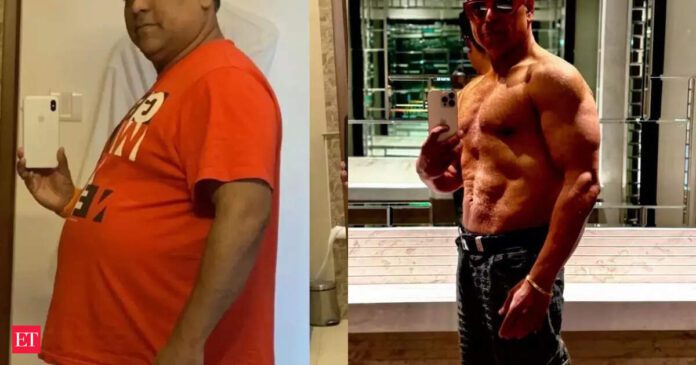When Ram Kapoor said eating just one meal a day boosts energy, he wasn’t exactly claiming to be a role model. “Main nahi karta hoon,” he clarified, but he was quick to praise those who do, like his co-guest Mona Singh, who calmly confessed, “I eat one meal a day.”
Citing Sadhguru as inspiration, Kapoor added, “Unhone khud bataya hai, YouTube mein hai.” He claimed that eating two meals a day is actually “overeating,” and slammed the three-meal-a-day norm as a conspiracy by the food industry, “Teen meal khaao, cereal khaao… sab galat hai. Yeh sab food industry ko promote karne ke liye kiya gaya tha.”
Bharti Singh’s Comeback: “Main toh chaar khaati hoon!”
Of course, it wouldn’t be a Bharti Singh podcast without some classic punchlines. When Kapoor dropped the two-meal truth bomb, Bharti laughed, “Main toh chaar khaati hoon!”
Kapoor, not to be outdone, replied, “Main toh 10 khaata tha. Beech-beech mein saans lene ke liye rukna padta tha.”
But behind the laughter was a real question, can fewer meals actually make us healthier?
What’s the Fuss About OMAD and Intermittent Fasting?
Kapoor’s words echo a rising trend, OMAD (One Meal A Day) and intermittent fasting. These diets are gaining popularity for their supposed benefits: increased energy, weight loss, better focus.But do they work for everyone? And more importantly, are they safe?
Let’s face it, most Indians don’t live in luxury, with chefs and nutritionists on call. Long commutes, irregular work hours, and varied dietary needs make “one meal a day” a tricky proposition.
Doctors warn that extreme fasting can lead to fatigue, nutrient deficiency, or even binge eating later in the day. What works for a celebrity may not work for the average person struggling with 10-hour shifts and traffic jams.
Disclaimer: This article is for informational purposes only and not a substitute for professional medical advice. Always seek the advice of your doctor with any questions about a medical condition.

